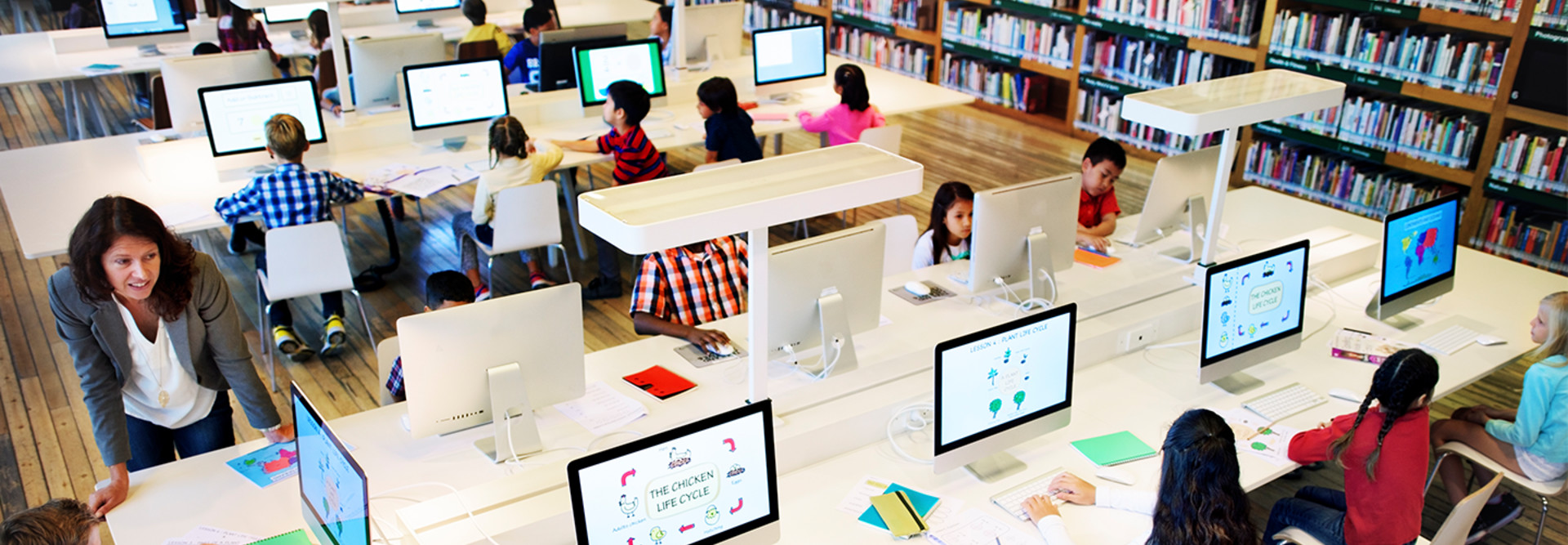Need to look something up? Google!
Nowadays, when we have to read or conduct research, we most likely first consult online sources. In the present digital age, schools are increasingly integrating technology in the classroom and supplanting print texts. Along with this, libraries are becoming more and more outdated for many modern learners. For centuries, people perused bookshelves and spent hours immersed in individual research. Libraries served a key role by providing free and open access to information, specifically by suppling physical materials. Today, technology has taken on a number of their functions.

Despite these developments, I argue that it’s important to continue to preserve the print medium and school libraries. While digital outlets fulfill new consumer demands for immediacy and mobility, print resources still have considerable benefits. Students who read and write on paper remember more, understand more, and learn more on average than those who utilize online methods. Print texts appear more effective at forcing the in-depth, close reading critical to the education process, rather than promoting speed reading or condensed/summarized publications. Furthermore, especially at a young age, technology can be distracting and thus detract from the efficacy of the learning environment. It also opens up new ways of cheating for students.

That being said, digital literacy training is now an essential component of a sound education. Early exposure to technology prepares students for their future schooling and employment. The digital platform can be a valuable learning tool, allowing for an interactive medium of study and facilitating programs which adjust to each pupil’s specific skillset. So, while libraries should still preserve the print medium, they must also make adaptations in order to adjust to the changing times. They can no longer rely on the scope and quality of their collections to satisfy the young modern scholar. Simply offering more digital sources and forming interlibrary networks is not enough.

Instead, they must shift to focusing on their patron support services, particularly those technology-related. They can help match individual students with the appropriate resources according to their strengths and interests. They can curb the education gap by supplying assistance, information, and technology to disadvantaged students. They can promote collaboration, civic engagement, and creativity. They can aid in digital literacy training by teaching about confidentiality, privacy, fair use, and intellectual freedom. In this way, the quality of their assistance and information far supersedes the quantity of the materials they furnish. It leads staff to play a more active role in shaping the education environment.

Accordingly, libraries should continue to have a vital place in the education sector. Libraries are safe and diverse spaces to engage developing learners. They build a school culture which supports the needs of individual students and guides them to their future successes. We must work to prevent the closing of more school libraries, the downsizing in their staffing, and the reduction in their funding. Then, years from now, students won’t just have Google for advice – they’ll also have the expertise and enthusiasm of a living, breathing school librarian.
Sources
https://stateimpact.npr.org/florida/2012/11/20/the-downside-of-a-high-tech-classroom
https://americanlibrariesmagazine.org/2018/03/01/fight-for-school-libraries
Images
I cannot imagine a world without libraries. I definitely prefer reading a book on paper than over online. Also, I was lucky enough to go to a school district with libraries that were already moving in the direction that you were saying. Our librarians taught us how to use different resources and they would hold “poetry slams” for the students. I feel like getting active librarians is a big part of changing our libraries; if we have librarians that really care about making a difference and are willing to learn how to do that, then it is one step in the right direction to improving our libraries.
I agree with you in part. I feel libraries are an important resource, but librarians are not… at least in schools. I feel their job is easily replaceable and inefficient given how much they are paid. The dewey decimal knowledge does not require $55,000 a year. I liked my librarian, though it wasn’t relevant.
While libraries are certainly useful, can we really force people to visit the library or use its resources? From a business perspective, it will likely be difficult to keep libraries open simply because there are better alternatives such as Google. Maybe we could re-vamp the library system as a whole and make it more convenient or engaging but I think it is unlikely that we will convince people to go to the library simply because we don’t want to see them shutdown. That’s my 2 cents for what it’s worth. Great blog!